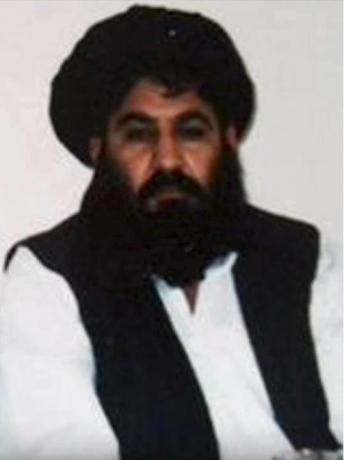Afghan Taliban appoint new leader after Mansour's death
The Afghan Taliban named one of former leader Mullah Akhtar Mansour's deputies to succeed him on Wednesday, after confirming Mansour's death in a US drone strike at the weekend.
Mansour will be replaced by Haibatullah Akhunzada, who was named in a United Nations report last year as the Taliban's former chief justice, said Zabihullah Mujahid, the Taliban's main spokesman, in the statement.
Sirajuddin Haqqani, head of a feared network blamed for many high-profile bombs attacks in Kabul in recent years, and Mullah Mohammad Yaqoob, son of Taliban founder Mullah Mohammad Omar, will serve as deputies.
The announcement, following a meeting of the Taliban's main shura, or leadership council, ended days of confusion during which the Taliban declined to confirm the death of Mansour in a drone strike in Pakistan on Saturday.
"All the shura members have pledged allegiance to Sheikh Haibatullah in a safe place in Afghanistan," the statement said. "All people are required to obey the new Emir-al-Momineen (commander of the faithful)."
Haibatullah Akhunzada, believed to be around 60 years of age and a member of the powerful Noorzai tribe, is from Kandahar, in the south of Afghanistan and the heartland of the Taliban.
He was a close aide to Mullah Omar, Taliban sources said, and is understood to share Omar's aversion for publicity, including the leaking of any photographs of him.
Some members of the Taliban believe that Mansour may have been traced and later killed because a photograph of him was shared after his appointment as leader in 2015.
QUESTIONS OVER PEACE TALKS
Senior members of the insurgent group had been keenly aware of the need to appoint a candidate who could bring disparate factions together and repair the splits that emerged last year when Mansour was appointed.
However, there was no immediate indication of whether the appointment would lead to a shift in the stance of the Taliban, which under Mansour ruled out participating in peace talks with the government in Kabul.
The United States, Pakistan and China have also been trying to get the militants to the negotiating table to end a conflict that has killed thousands of civilians and security personnel and left Afghanistan seriously unstable.
News of the appointment came as a suicide attack on a bus carrying staff from an appeal court killed 10 people and wounded four west of the Afghan capital, Kabul. There was no immediate claim of responsibility.
The Taliban have made big gains since NATO forces ended their main combat operations in Afghanistan in 2014, and now control more of the country than at any time since they were ousted by US-led forces in 2001.
Mansour, a former deputy to Omar named as leader after the Taliban announced that Omar had died more than two years earlier, faced widespread suspicions that he had deceived the movement by covering up his predecessor's death.






